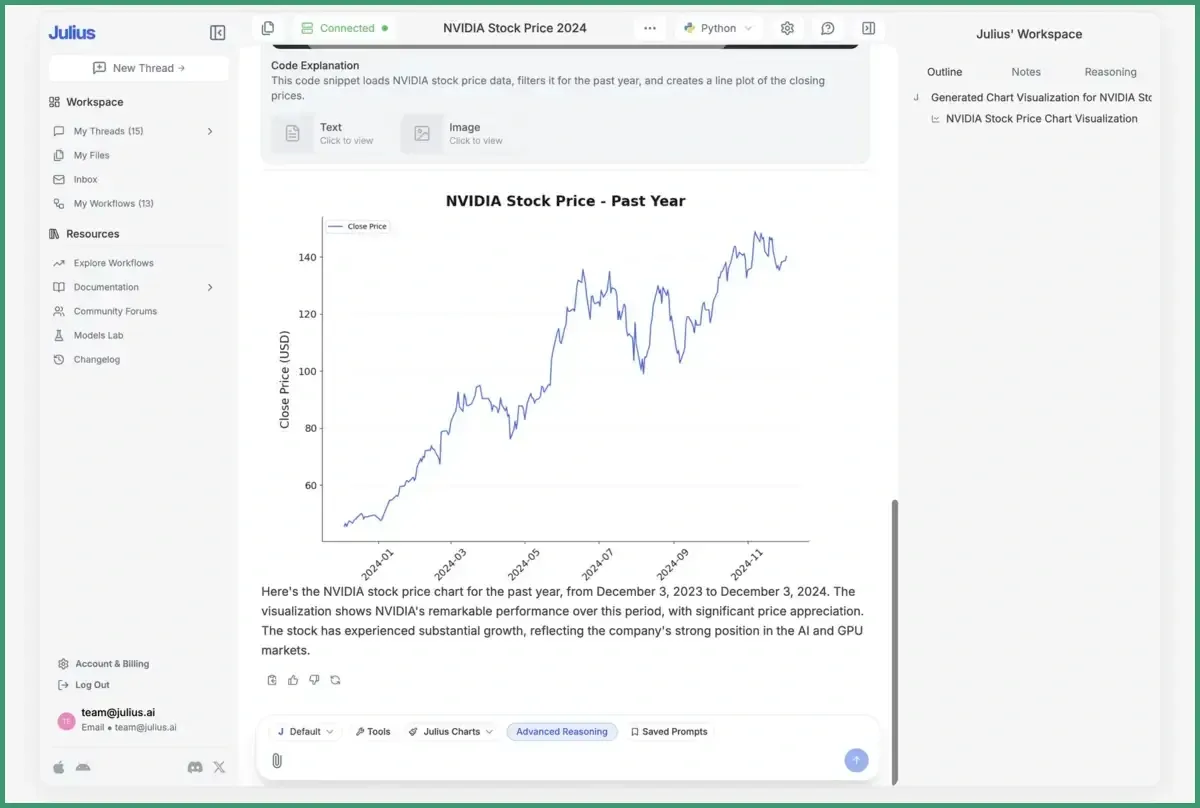Good Morning from San Francisco,
Anthropic secretly throttled Claude Code for weeks before admitting it. Paying subscribers hit invisible walls with no usage dashboard. The company finally announced formal limits affecting less than 5% of users—but still won't show consumption data.
Meanwhile, Nvidia ordered 300,000 chips for China after Trump lifted his ban, but export licenses remain stuck in bureaucratic limbo. Chinese AI companies wanted far more chips than Nvidia's existing stockpile could supply.
Stay curious,
Marcus Schuler
Claude Code Hits Invisible Limits, Raising Questions About AI Subscription Transparency

Anthropic spent weeks secretly throttling Claude Code before finally admitting what developers already knew: the AI coding tool was hitting invisible walls.
The company quietly started restricting usage in mid-July, leaving paying subscribers guessing why their $200-per-month service suddenly slowed down. When frustrated developers flooded GitHub forums demanding answers, Anthropic's initial response was corporate nonsense about "being aware of issues."
Only after the backlash reached a boiling point did Anthropic come clean. In late July, they announced formal weekly rate limits starting August 28, blaming users who run Claude Code "continuously in the background, 24/7." One user apparently burned through "tens of thousands" in compute costs on a $200 plan.
But here's what Anthropic still won't fix: users can't see how much they've consumed. There's no usage dashboard, no consumption meter, no way to track whether you're approaching limits. You just hit a wall and hope for the best.
This mess reflects a broader problem with AI subscriptions. Companies like OpenAI, Google, and Anthropic all offer $200-plus plans they admit lose money. They're essentially subsidizing power users while keeping everyone else in the dark about actual costs.
Why this matters:
• Without usage transparency, even paying customers can't manage their consumption or budget effectively
• The "all-you-can-eat" AI model is breaking down, but companies aren't being honest about the new reality
AI Image of the Day

Prompt:
a woman in a black business suit standing alone on a narrow stairway inside an old Korean building, viewed from above through a dusty window, camera slightly tilted, she is standing sideways or in profile, not looking at the camera, emotionless expression, awkward posture, surrounded by terrazzo stairs, mint green walls, and black metal railings, photo taken with an old digital camera, low resolution, awkward framing, harsh shadows, grainy texture, low fidelity, washed out color tones, early 2000s lo-fi meme aesthetic, subtle noise, emotionally detached surreal mood
Opinion: Anthropic Hides Usage Data While Capping Claude Code

Anthropic wants to limit Claude Code usage. Fair enough—it's their service. Starting August 28, Max subscribers face new weekly caps that affect less than 5% of users.
But here's the problem: subscribers can't see their usage. No dashboard. No warnings. No meter at all.
API customers get real-time tracking and detailed logs. Max subscribers—who pay fixed monthly fees—operate blind. You find out you've hit the limit when Claude stops working.
This creates what economists call information asymmetry. Anthropic knows exactly who's approaching limits. Users don't. That's not just inconvenient—it's manipulative.
The company bills itself as the ethical AI lab. CEO Dario Amodei recently turned down Middle East funding on principle. They wrote a constitution for their AI systems.
Yet they can't extend basic transparency to paying customers.
The timing stinks too. Claude Code already faces reliability issues. Now users get throttling with no visibility into when it'll happen.
Meanwhile, Chinese competitors offer similar tools at half the price—with better transparency. When developers can track their usage elsewhere, the choice becomes obvious.
Rate limits aren't the issue. Hiding the meter while tightening the tap is.
Why this matters:
• Anthropic preaches AI transparency while practicing billing opacity—undermining trust in their ethical positioning
• Competitors with clearer usage data will win over developers who need predictable access to coding tools

🧰 AI Toolbox
How to Create Custom Music for Your Projects

beatoven.ai composes original music based on the mood and style you want. Pick a genre, set the emotion, and get royalty-free music that matches your content perfectly. No copyright issues.
Tutorial:
- Sign up for a beatoven.ai account
- Choose a genre and mood for your music
- The AI generates a unique track for you
- Customize instruments, tempo, and other settings
- Add your own melodies if desired
- Download as high-quality audio file
- Use in videos and projects without copyright worries
Better prompting...
Today: Training Session Feedback Form Design
Create a comprehensive employee feedback form to evaluate training session effectiveness. The form should:
Context & Purpose:
- Target audience: [Specify employee level - new hires, managers, all staff, etc.]
- Training type: [Specify - onboarding, technical skills, leadership, compliance, etc.]
- Form length: Aim for 5-10 minutes completion time to maximize response rates
Key Areas to Evaluate:
- Content quality and relevance to job role
- Instructor/facilitator effectiveness
- Training format and delivery method
- Learning objectives achievement
- Practical applicability of skills learned
- Overall satisfaction and engagement level
Requirements:
- Include both quantitative (rating scales) and qualitative (open-ended) questions
- Use a mix of Likert scales, multiple choice, and comment fields
- Add questions about preferred learning formats for future sessions
- Include space for specific improvement suggestions
- Format: [Specify - digital form, printable PDF, specific platform like Google Forms, etc.]
Output Goals:
- Generate actionable insights for training program improvement
- Identify top-performing and underperforming training elements
- Collect suggestions for future training topics and formats
AI & Tech News
Microsoft Turns Edge Into Full AI Browser With New Copilot Mode
Microsoft launched "Copilot Mode" for Edge today, an experimental feature that transforms the browser into an AI-powered assistant capable of seeing across all your tabs, booking reservations, and navigating websites through natural language commands. The move puts Microsoft ahead of competitors like Perplexity and OpenAI, who are reportedly working on their own AI browsers—though the free preview will likely require a Copilot Pro subscription once the experiment ends.
Sony Sues Tencent Over Alleged Horizon Game Ripoff
Sony Interactive sued Tencent in California federal court, claiming the Chinese company's upcoming "Light of Motiram" is a "slavish clone" of its popular Horizon adventure series that copies distinctive gameplay, story themes and artistic elements. The lawsuit came after Sony declined Tencent's collaboration offer on a new Horizon game last year—apparently Tencent decided to make their own version anyway, prompting one video game journalist to dub it "Horizon Zero Originality."
Spotify Adds Millions of Subscribers, Loses Money Anyway
Spotify beat subscriber expectations with 696 million monthly active users and 276 million premium subscribers, but swung to a €86 million loss from a €274 million profit last year as higher personnel and marketing costs ate into gains. The streaming service's 50% stock surge this year created its own headache—€115 million in extra payroll taxes that helped turn what should have been a victory lap into a costly stumble.
PayPal Beats Earnings, Stock Drops Anyway
PayPal crushed Wall Street's earnings and revenue expectations while raising its full-year outlook, yet investors sent shares down 4% in a classic case of buy-the-rumor, sell-the-news trading. The real story lies in Venmo's 20% revenue surge and payment volume hitting its fastest growth in three years, suggesting CEO Alex Chriss's bet on monetizing the peer-to-peer app is finally working.
Google's AI Search Mode Hits UK, Publishers Brace for Traffic Drop
Google launched "AI Mode" in the UK, replacing traditional blue-link search results with conversational AI answers that contain far fewer clickable links to other websites. The Daily Mail reports a 50% drop in clicks since Google's similar AI Overview feature launched, highlighting how the search giant's shift toward keeping users on its own pages threatens the business models of publishers and retailers who depend on Google traffic.
China Pitches Global AI Cooperation to Counter Trump's America First Plan
China used its first major AI conference since the DeepSeek breakthrough to position itself as the multilateral alternative to Trump's unilateral tech strategy, with Premier Li Qiang announcing new UN dialogue mechanisms and a Shanghai-based cooperation organization. The expo featured 60 robot companies and hundreds of firms showcasing products built on Chinese open-source models rather than last year's reliance on Meta and OpenAI—a shift that former Google CEO Eric Schmidt and other Western AI leaders witnessed firsthand.
Bitmain Builds First US Factory After Trade War Beats Down Chinese Imports
Bitmain, the world's largest crypto mining hardware maker, will open its first US factory by September in Texas or Florida after years of customs delays and blacklisting hurt its American business. The Beijing-based company's 250-employee facility reflects Trump's push to dominate Bitcoin mining domestically—a strategic shift that turns a once-fringe digital pursuit into the latest front in America's industrial policy wars.
Trump DOJ Fires Top Antitrust Officials After HPE Settlement Dispute
The Justice Department fired its two most senior antitrust enforcers Monday after they clashed with leadership over a settlement that let Hewlett Packard Enterprise close its $14 billion Juniper Networks acquisition. The unprecedented dismissals followed HPE's successful strategy of hiring politically connected lawyers instead of antitrust specialists—a move that's now got companies scrambling to find their own well-connected fixers for future merger battles.
Tea Dating App Hit by Second Breach Exposing Abortion and Cheating Messages
A second major security breach at women's dating safety app Tea exposed users' private messages about abortions, cheating partners, and personal phone numbers—contradicting the company's claim that last week's breach only affected old data since this leak included messages from as recently as last week. Despite Tea encouraging anonymous usernames, researchers easily identified real users through social media handles and personal details shared in what users believed were private conversations.
Julius AI Raises $10M to Challenge ChatGPT at Number Crunching
Julius AI raised $10 million in seed funding led by Bessemer Venture Partners to build an AI data analyst that turns natural language prompts into charts and predictions, competing directly with similar features in ChatGPT and Claude. The startup, founded by the same guy who pulled off the viral "Rahul Ligma" Twitter prank, now serves over 2 million users and even powers a required Harvard Business School course.
Nvidia Orders 300,000 Chips for China Despite License Limbo

Nvidia placed a 300,000-unit order with TSMC for H20 chips after Chinese demand convinced the company to restart production. The order came weeks after Trump reversed his April ban on H20 sales to China, but there's a catch: export licenses still haven't arrived.
Nvidia figured it could just sell through its stockpile of 600,000 to 700,000 H20 chips. Chinese companies like Tencent, ByteDance, and Alibaba wanted way more than that. Their massive orders forced Nvidia to restart the supply chain.
The H20 is a downgraded chip Nvidia built specifically for China after the U.S. blocked sales of its more powerful processors. It has less computing power but still runs Nvidia's software tools.
Washington promised quick license approvals back in July. The Commerce Department is still sitting on them. The whole 300,000-unit order now hangs in bureaucratic limbo while TSMC can build the chips but can't ship them anywhere.
The decision connects to broader trade talks over China's rare earth magnet exports. Critics from both parties slammed the move, saying any advanced chip access helps China's AI development.
Why this matters:
- Policy whiplash reveals how billion-dollar tech deals can swing on regulatory mood changes, leaving companies guessing what Washington actually wants.

🚀 AI Profiles: The Companies Defining Tomorrow
Julius AI

Julius AI turns spreadsheet warriors into data wizards through conversational analytics. Founded by ex-Uber/Facebook ML engineer Rahul Sonwalkar, this Y Combinator grad pivoted from logistics to democratize data science for the masses.
The Founders
• Founded summer 2022 by Rahul Sonwalkar in San Francisco 🌉
• Small team at Caesar Labs, Inc. after YC pivot
• Mission: put AI data scientist in every knowledge worker's pocket
• Sonwalkar's viral "Rahul Ligma" Twitter HQ prank made headlines (he's moved on)
The Product
• Chat-based AI that crunches data like a human analyst
• Connects to Excel, databases (PostgreSQL, BigQuery, Snowflake), PDFs
• Generates 4M lines of code daily - 4,000x human output
• Creates visualizations, forecasts, regressions on command
• 2M+ users, 10M+ charts created
• Harvard Business School teaches it to 900+ MBA students 📚
The Competition
• Battles ChatGPT's code interpreter and Google's Gemini
• Startups like Narrative BI, PowerDrill AI nipping at heels
• Legacy players (Microsoft Power BI, Tableau) adding AI features
• Julius wins on polish, transparency, academic street cred
• Focus beats breadth... for now
Financing
• $10M seed led by Bessemer Venture Partners (July 2025) 💰
• Star-studded angels: Notion, Vercel, Replit, Perplexity founders
• YC, Horizon VC, 8VC, AI Grant backing the vision
• Valuation undisclosed but seed size signals premium pricing
The Future ⭐⭐⭐⭐
Julius rides the AI productivity wave perfectly - billion spreadsheet users need this. Plans real-time anomaly detection and proactive insights. Risk: tech giants could crush them with bundled features, but academic adoption creates lasting moat.









